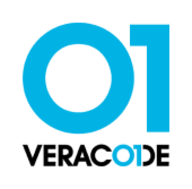


Find out what your peers are saying about Sonar, Veracode, Checkmarx and others in Application Security Tools.



Fortify on Demand is a web application security testing tool that enables continuous monitoring. The solution is designed to help you with security testing, vulnerability management and tailored expertise, and is able to provide the support needed to easily create, supplement, and expand a software security assurance program without the need for additional infrastructure or resources.
Fortify on Demand Features
Fortify on Demand has many valuable key features. Some of the most useful ones include:
Fortify on Demand Benefits
There are several benefits to implementing Fortify on Demand. Some of the biggest advantages the solution offers include:
Reviews from Real Users
Below are some reviews and helpful feedback written by PeerSpot users currently using the Fortify on Demand solution.
Dionisio V., Senior System Analyst at Azurian, says, "One of the top features is the source code review for vulnerabilities. When we look at source code, it's hard to see where areas may be weak in terms of security, and Fortify on Demand's source code review helps with that." He goes on to add, “Another reason I like Fortify on Demand is because our code often includes open source libraries, and it's important to know when the library is outdated or if it has any known vulnerabilities in it. This information is important to us when we're developing our solutions and Fortify on Demand informs us when it detects any vulnerable open source libraries.”
A Security Systems Analyst at a retailer mentions, “Being able to reduce risk overall is a very valuable feature for us.”
Jayashree A., Executive Manager at PepsiCo, comments, “Once we have our project created with our application pipeline connected to the test scanning, it only takes two minutes. The report explaining what needs to be modified related to security and vulnerabilities in our code is very helpful. We are able to do static and dynamic code scanning. When we are exploring some of the endpoints this solution identifies many loopholes that hackers could utilize for an attack. This has been very helpful and surprising how many vulnerabilities there can be.”
A Principal Solutions Architect at a security firm explains, “Its ability to perform different types of scans, keep everything in one place, and track the triage process in Fortify SSC stands out.”
PeerSpot user Mamta J., Co-Founder at TechScalable, states, "Almost all the features are good. This solution has simplified designing and architecting for our solutions. We were early adopters of microservices. Their documentation is good. You don't need to put in much effort in setting it up and learning stuff from scratch and start using it. The learning curve is not too much."
SonarQube Server enhances code quality and security via static code analysis. It detects vulnerabilities, improves standards, and reduces technical debt, integrating into CI/CD pipelines.
SonarQube Server is a comprehensive tool for enhancing code quality and security. It offers static code analysis to identify vulnerabilities, improve coding standards, and reduce technical debt. By integrating into CI/CD pipelines, it provides automated checks for adherence to best practices. Organizations use it for code inspection, security testing, and compliance, ensuring development environments with better maintainability and fewer issues.
What are the key features of SonarQube Server?Many industries implement SonarQube Server to uphold coding standards, maintain security protocols, and streamline their software development lifecycle. In sectors like finance and healthcare, adhering to regulations and ensuring reliable software is critical, making SonarQube Server invaluable. It is often integrated into CI/CD pipelines, ensuring that code changes meet set standards before deployment. This approach enhances productivity and maintains compliance with industry-specific requirements.
Veracode is a leading provider of application security solutions, offering tools to identify, mitigate, and prevent vulnerabilities across the software development lifecycle. Its cloud-based platform integrates security into DevOps workflows, helping organizations ensure that their code remains secure and compliant with industry standards.
Veracode supports multiple application security testing types, including static analysis (SAST), dynamic analysis (DAST), software composition analysis (SCA), and manual penetration testing. These tools are designed to help developers detect vulnerabilities early in development while maintaining speed in deployment. Veracode also emphasizes scalability, offering features for enterprises that manage a large number of applications across different teams. Its robust reporting and analytics capabilities allow organizations to continuously monitor their security posture and track progress toward remediation.
What are the key features of Veracode?
What benefits should users consider in Veracode reviews?
Veracode is widely adopted in industries like finance, healthcare, and government, where compliance and security are critical. It helps these organizations maintain strict security standards while enabling rapid development through its integration with Agile and DevOps methodologies.
Veracode helps businesses secure their applications efficiently, ensuring they can deliver safe and compliant software at scale.